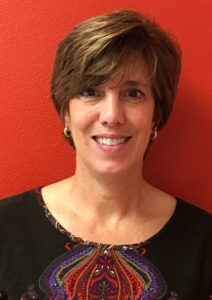
Debbie Fortney
By Debbie Fortney
debbie.fortney@daviess.kyschools.us
“I hate math! I’m not good at math. I’m never going to use this! My mom said I will never use this stuff.”
These are quotes I have heard in the classroom and are representative of some of the negative attitudes toward mathematics embraced by the outside world. I cannot tell you how many times I have had parents tell me, “Our family is not good at math. We don’t do math; it just doesn’t work for us.”
When schools have parent-teacher conferences, it’s always the mathematics teacher who has parents lined up in the halls, trying to find an answer to their child’s grade.
Students often enter high school with a fixed mindset that says it is OK to hate math, it is OK to be bad at math and it is OK to give up because math is hard.
I do not believe mathematics is a talent; I believe it is a skill. Everyone can learn math and everyone needs math. It is culturally acceptable in the United States to be negative about math in a way that we don’t talk about other life skills, such as reading and writing. People talk about math as if it were a genetic gift possessed only by a few and inaccessible to most.
While other cultures embrace math and push children to learn it, we accept the negative and even embrace the failure. There is an old Asian proverb that says, “If you are good at math, it is because you are a hard worker.” With this type of attitude, anyone can learn math and everyone does learn it.
In my early days of teaching, one of my most struggling students told me she was going to be a pharmacist; I thought, “No way, with your math skills.” However, she showed me! With constant hard work, tutoring and asking a lot of questions, this child succeeded in high school math. She went on to college and became a pharmacist. I loved watching her as she pushed and struggled and achieved her life goal.
In order to change our way of thinking about math, we have to realize the value of math and the important part it plays in success for our students. Math is the only subject where a correlation has been found between success in mathematics in high school and success in college. Students who do not pass Algebra I are less likely to graduate from high school, and students who take pre-calculus are more likely to graduate from college.
It’s not so much all about the knowledge students gain from these classes as it is the work ethic students develop to pass these classes. Students who have a positive belief system – or a growth mindset – developed through hard work and dedication, learn from mistakes and embrace challenges.
I have a sign in my room that says, “With every mistake, we must surely be learning.” Embracing mistakes and pushing through the struggles helps us to learn. When students believe math abilities are inborn, they lose confidence and never develop the skills to push through their struggles, and then never develop their mathematical skills.
I wish I had all the answers within the walls of my classroom to break through and help all my students be successful at math – which doesn’t mean they must all make As. I wish I could help them realize that when a student has a good attitude and takes on learning with a little grit and perseverance, he or she will be successful.
I try to change my student’s attitude toward mathematics by being positive, showing the value of math and teaching how to learn from mistakes, but I need help from parents and our culture to stop hating math! The message teachers should be trying to convey to parents is to work with their children in developing a love for numbers as they do for their letters. Play games with numbers on the daily drive to school, such as adding the digits on license plates of the car in front of you. Embrace the math homework they bring home even if it is different from the way you learned. The new methods are working on number sense and will help their kids as they advance in mathematics. Keep a good attitude and never let the children hear them say they hate math or that they will never use this algebra!
Parents should realize they really do use algebra and the thinking skills they learned in their math classes all the time. They just don’t call it “X.”
Debbie Fortney has taught math for 23 years, including nine at Daviess County High School. She graduated from Western Kentucky University with a double major in math and German, and received her master’s degree in math education from WKU. She is a National Board certified teacher and is the assistant track and cross country coach at DCHS.




Leave A Comment